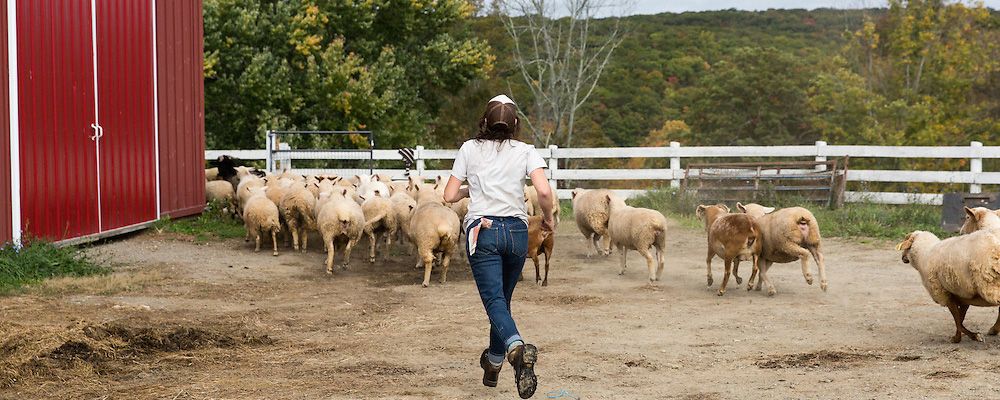In the Ground: Growing Small Grains on the Home Farm
by June Russell, Director of Regional Food Programs and Matthew Ball, Field Operator
The newly formed Grains and Staples Program at Glynwood seeks to build markets for emerging staples crops and promote production of regionally appropriate grains and staples, with a special emphasis on ensuring these production systems adopt climate adaptation strategies. This is an outward looking project drawing from the history of and resources from the Hudson Valley region and beyond to prepare for a future with many unknowns for food production and distribution. Right now, the Grains program and the farm team have established a small experimental grains garden for a closer look at several different kinds of grains that might be grown on the Glynwood Farm in the future.
The farm crew put in a couple of beds this fall, totaling about 350 square feet, to get grain seed in the ground to tend, observe and learn from. We seeded a blend of hulless barley varieties we received from Oregon State University. The seed blend, called ONBB, is part of an organic research project on developing regionally adapted hulless (aka naked) barley varieties for organic farming systems. The blend contains seeds from hundreds of varieties and has been used as a teaching tool to show the role of plant breeding and seed selection. There is a lot of plant variation in the seed including height, shape and color. We will select our preferred varieties from this diversity, just as farmers have done for millennia. This small seeding already germinated and is establishing well before the cold weather sets in. We are excited to see how our barley crop develops through next spring.
Almost all of the grains commercially produced and consumed are annual plants that must be reseeded every growing season. The Land Institute has been working to develop perennial crops for decades. Many of these crops are now showing ecological promise, with deeply rooted plants that take up nutrients and water, promote healthy soils, sequester carbon, and provide nutritious foods.
We are thrilled to be participating in the Land Institute’s Perennial Wheat Civic Science program. Over the next three years, we will collaborate with participants across the continent to help the Land Institute better understand how their perennial wheat variety and intermediate wheatgrass, trademarked as Kernza, responds to a wide range of growing environments. The small research plot we planted this fall at the Glynwood Farm, just one of many dozens of other plots across the country, includes five plants of an annual winter wheat, five plants of the intermediate wheatgrass, and twenty of the perennial wheat. The plot is growing well and we are looking forward to sharing our observations of these different wheat varieties in Glynwood’s soil and climatic conditions with the Land Institute over the next three years.
There are growers, producers, and researchers in the Hudson Valley and throughout the Northeast who are doing great work to develop a viable, regional small-grains sector and we look forward to working with them. Our goals on the farm at Glynwood do not include on-site commercial production, but do include learning about and exploring the viability of varieties and continuing to incorporate grains into our cover cropping and livestock grazing systems. Over the winter the Glynwood farm team will continue to comprehensively explore where grains and other staple crops fit into Glynwood’s own farm and how we can continue to bring resources to our Hudson Valley network.
Back to News & Notes

